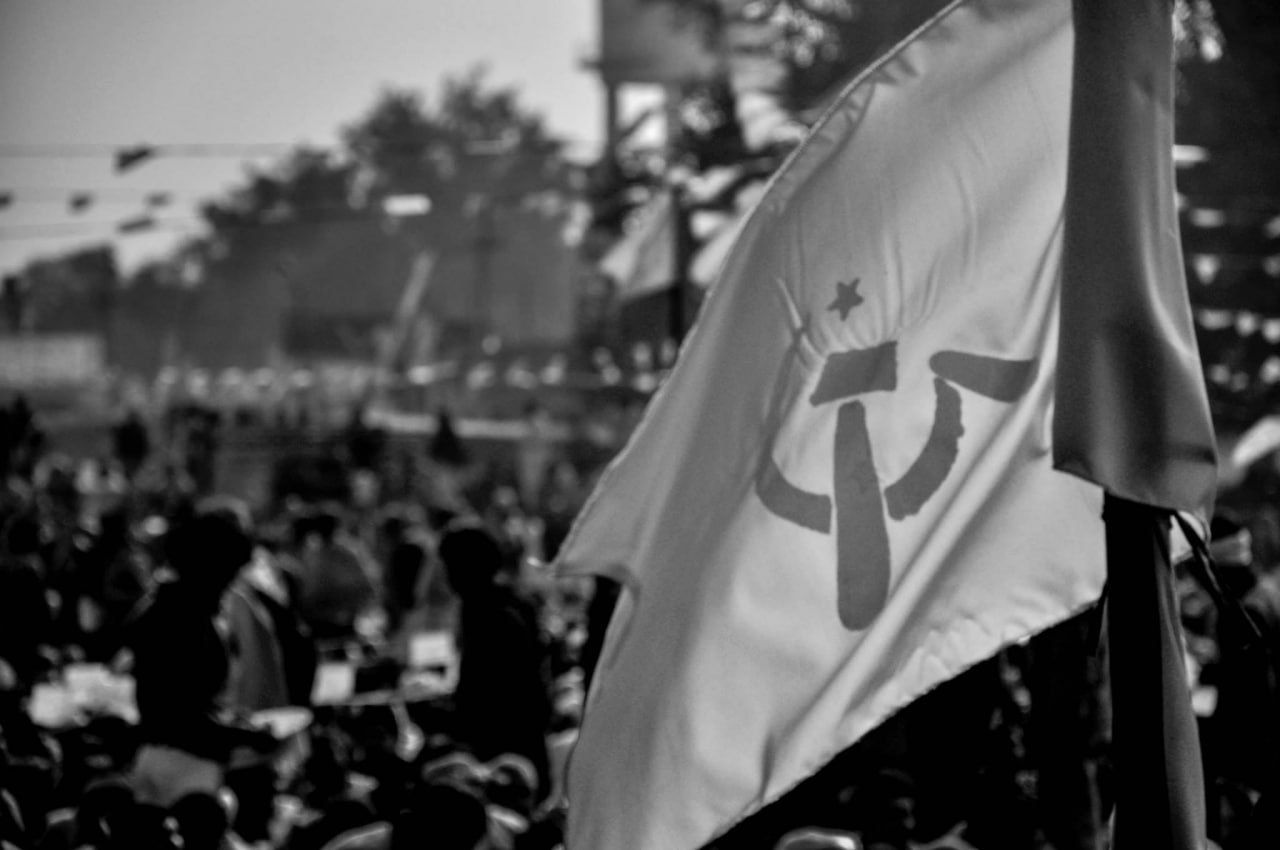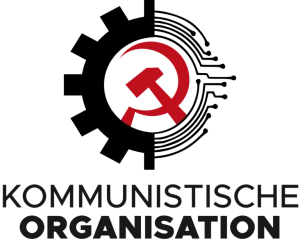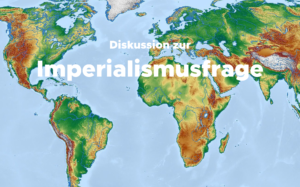Progress of History

Article by Surjeet Singh
Over the past months, I have often brought up the issue of so-called ‘systemic crisis of imperialism’ in discussions with the comrades. The main impulse for me has been the centrality that the Indian communist movement gives to the issue of the systemic crisis in almost every issue it deals with, including the overall strengthening of the reactionary forces, the neo-liberal politics, the wars today, etc. The centrality it enjoys in the Indian communist movement, is not something that is found in the German communist movement.Whether this is true or not, is something that we can and must talk about.
The main argument of the so-called systemic crisis thesis is that the ongoing crisis of capitalism is not a cyclic anymore, but rather a systemic one. Whereby, it is meant that the entire system, the entire machinery of imperialism, the highest stage of capitalism, as such has fallen into the crisis, with no way out. It is argued that the law of the tendency of the profit rate to fall is being proven correct and it is increasingly becoming difficult for the system to generate profits to sustain itself. However, the response to such claims is that isn’t capitalism always in crisis. Or what is so significant about this crisis that we need to take it into consideration, especially for the question of imperialism? Here, I must fully acknowledge that I have failed to answer these questions, primarily because I myself do not have a good understanding of this issue. And the situation, continues to remain the same even now. In this sense, I do not have much to add to the issue directly.
However, there is another perspective I would like to bring, something which is larger but connected to the question of the systemic crises, and something that is already present here in the debates, namely, the Progress of history.
The reason why I want to bring this issue in the discussion explicitly is simply to make the point that history, in all its contradictions, is progressing forward. That, despite the temporary but historic defeats of the working-class movement in the past several decades, the history has both quantitatively, and in many aspects, even qualitatively progressed ahead. However, due to the presence of certain dogmatic and left-deviatory trends in the communist movement, there is a tendency to not acknowledge this progress of history. It is so, because the left-deviations, or at least the ones that we encountered, reduce the possibility of such historical progress solely to the occasion of one single revolutionary break. Anything short of such a revolutionary break, history cannot and does not progress.
This issue, namely the progress of history, for me is most clear on the question of whether countries like China and Russia are imperialist or not. My argument is that Russia and China cannot be imperialists because the history has progressed ahead from the epoch, out of which imperialism or imperialists were born. Imperialism was born in the epoch of colonialism; imperialism’s genesis is in colonialism. It wasn’t born solely out of the concentration and centralization of capital within the national boundaries of the imperialist’s countries, it was also born, probably even more importantly out of the colonial plunder and loot that occurred over the two-three centuries before the epoch of imperialism. For instance, Britain, stole/ accumulated around 45 trillion dollars’ worth of wealth from India in the period between 1765 till 1936. 45 trillion dollars’ worth of wealth, that too from a single colony. This is an amount of wealth that we can hardly fathom, an amount of wealth that is higher than the total GDP of the biggest economies today. The current nominal GDP of USA stands at around 25 trillion dollars, of China at 18 trillion dollars, and of Britain, which looted so much wealth, stands at a mere 3.1 trillion dollars. The entire empire of the imperialists is built upon the colonial plunder.
My argument is that this colonial plunder cannot take place anymore today. The objective conditions, out of which SUCH a colonial plunder could take place, do not exist anymore.
Let’s take India for example. While on the one hand, the anti-imperialist and national liberation struggles against the old imperialists and colonizers continue today, it is impossible, it is absolutely impossible that a new colonizer, let’s say China, would come and colonize India. Why? Because the level of development of national consciousness, as well as the level of the development of the productive forces, that has taken place in India over the past century and more, would not allow any new colonizer to set its foot in India. The conditions required for a new colonizer to come to India and settle down are simply not there anymore. The new colonizer can try, but it cannot settle down there. The history has progressed in India.
This development of national consciousness as well as the development of productive forces exists and has taken roots in all the countries of the global south in different degrees negating any real possibility of a new colonizer to arise. This is the same reason why the settler colonial project Israel has a temporary character, whereas other settler colonies such as US, Canada, Australia, New Zealand have gained a permanency. It is because of the epoch within which these projects took shape. The Israeli settler colonial project took shape in the epoch of the intensification of national liberation struggles. The history had already progressed, the ground had already hardened, before the Israeli project could take roots in the region, making Israel an illegitimate child of history.
Without the possibility of a colonial plunder amounting to nothing less than trillions and trillions of dollars, it is impossible for a new imperialist power to arise. The conditions necessary for such a colonial plunder to take place do not exist anymore. The history has moved forward from the epoch of colonialism to imperialism, to the epoch of national liberation, to the epoch of transition to socialism. Imperialism represents a progress of history, and the clock, cannot turn back. What could have developed only in the previous epoch, cannot develop in the current epoch. History is neither static, nor does it move in a circle, history, in all its contradictions, progresses ahead and moves to a higher stage.
Another major event, or events that moved the history qualitatively forward, are the October socialist and other democratic revolutions of the past century. These revolutions fundamentally changed the world, they fundamentally and qualitatively brought the history forward, to a point from where the history cannot turn backwards. Despite the heavy defeats that we suffered, the ideological, as well as the material achievements of the socialist and democratic revolutions of the 20th century continue to exist today and form the basis of the struggles of anti-imperialism, national liberation, and socialism. The socialist construction project, undertaken in the last century is not dead, it continues to exist today, in different degrees, different forms, in different places, not least of all in China. With these revolutions, the genie escaped the bottle, and the specter of communism became qualitatively more real.
This fundamental progress of history as a result of these revolutions, also means that the character of the wars today is fundamentally different than the character of the wars before the October revolution. This human intervention in the history, has meant, that the productive forces around the world have advanced not just due to, but also despite of the imperialists. The human intervention in the history has necessitated and hastened the sharpening of the contradiction between the relations of production and the development of productive forces, at a global level. And this is what is playing out today, a constantly intensifying struggle between the relations of production and the development of productive forces. An antagonistic contradiction which can now be resolved only through socialism, or loosened through barbarism, i.e., through the destruction of productive forces.
Coming back to the question of the systemic crisis of imperialism. For imperialism, the progress of history, the continuation of history, means, that the centralization and concentration of capital has reached such a level that a further centralization, which is imperialism’s essence, its lifeline, that further centralization, is not possible anymore. The centralization of capital has reached its absolute historical as well as geographical limits. This is the absolute limit of the relations of production and the dead end of imperialism. This dead end means that it is not the hegemony of US imperialism or German imperialism that is in crisis, the dead end means that the entire imperialism as an epoch as such is in crisis, or in other words, objective conditions are ripe for a revolutionary transformation.
Imperialism has no place more to go, no place more to expand, most importantly, it does not have a structural response left anymore to carry out a considerable centralization of capital. It can create a financial bubble here or there, it can temporarily make use of a Modi in India, Milei in Argentina, but it does not have a structural response left anymore, except for one, WARS!!! Wars for the recolonization of its older territories, wars for the destruction of the productive forces, wars for loosening of the tension of the contradiction between the relations of production and the level of productive forces. It is only and only by loosening this tension, can imperialism initiate another round of accumulation of capital, failing which, imperialism will transition to socialism.
This compulsion, and this possible death, means that all the imperialists, need to put aside their differences, align together strategically, and fight together for the survival of its system. And this is what is taking place today. Yes, certain differences continue to remain, however, all the imperialists today, have banded together, and are united in their war of Balkanization and colonization of Russia, against the national liberation struggles in the Middle East, and are united in the preparation for a war against the forces of socialism in China.
On the other hand, the ripening of the objective factors is creating conditions where the ruling classes are increasingly running out of the alternatives that they can offer. Today, the necessity of socialism is becoming clear to an increasing number of masses. Conditions are ripening for turning of the ongoing struggles around the world into struggles for socialism, conditions are ripening for the development of the revolutionary consciousness of the subject of history, i.e., the working class. Here, the task of the communist parties remains central. The task remains on the one hand to understand the character of the current epoch and on the other hand develop revolutionary praxis based on a concrete analysis of the concrete situation and based on a constant struggle against revisionism and against adventurism/ infantilism.
To conclude, the wars today are the playing out of the constantly intensifying contradiction between the relations of production and the development of productive forces, the one of the struggles between the forces of history and the forces of reaction, the one of a struggle between the forces of socialism and forces of imperialism. While this historically progressive battle is taking place in different degrees across the globe, the contradictions of the current epoch of history find their acutest manifestation in the form of conflict between China and the USA.
This progress of history is not free of violence, but this a battle which the forces of reaction are going to lose. Because when one looks at the concrete historical development of capitalism, from its birth to its growth, to its current stage of imperialism, one finds that imperialism is like an old man lying in his death bed who does not have the physical capacity, or the legs left to carry out the fight for its survival.
The history is progressing forward, and imperialism is making the last-ditch effort for its survival. Of course, imperialism would seek to bomb us into barbarianism, destroy the productive forces, because that is its only option, however, the level of development of productive forces achieved as a result of the socialist construction projects that started in the previous century means that the history has both the tools to defend itself and carry out the struggle to its logical conclusion; Socialism!
Today, socialism is both necessary and possible!












